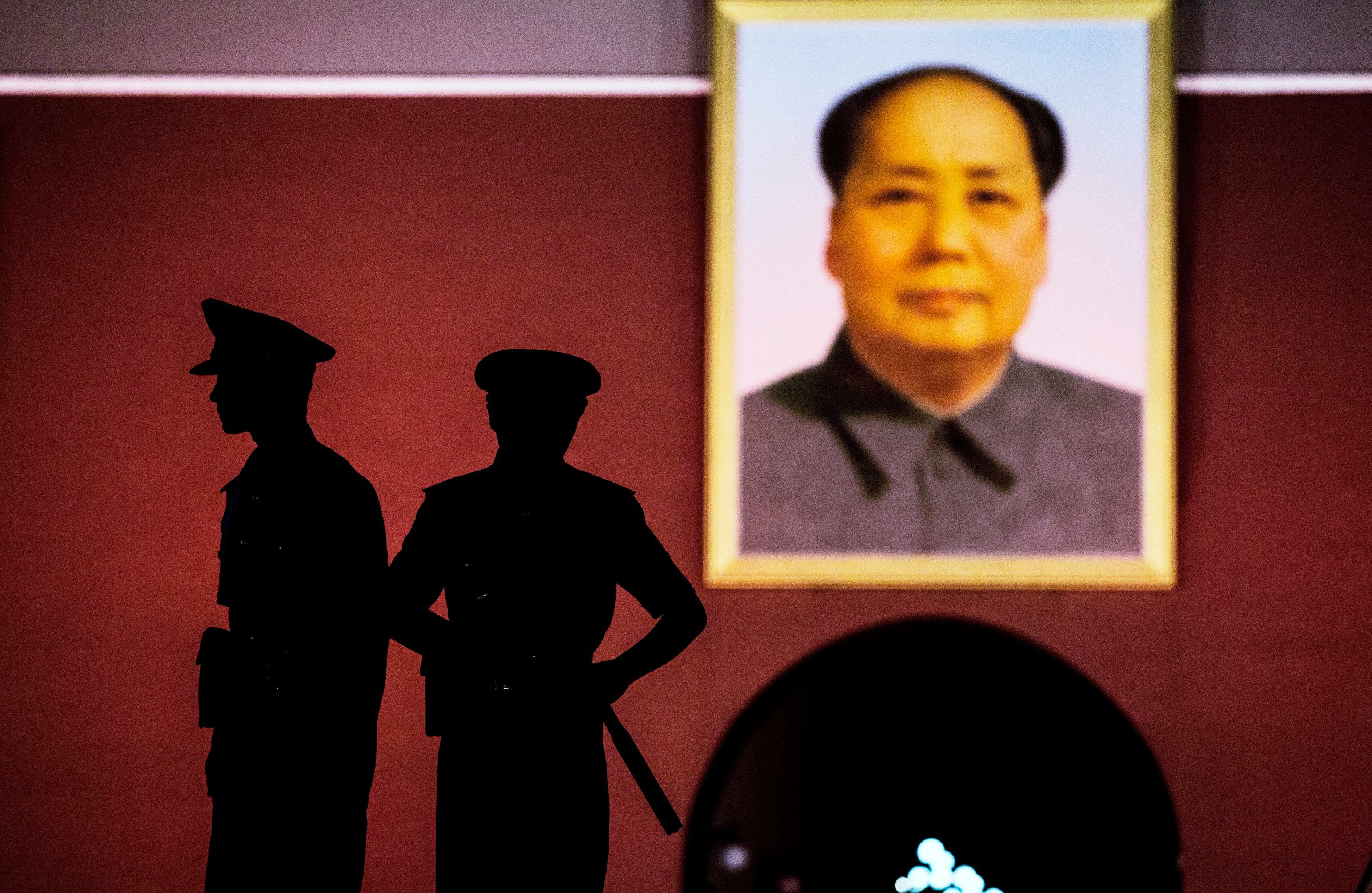
To stroll Tiananmen Square is to feel very small. One of the world’s largest public spaces, Tiananmen’s scale conveys a forceful point: humans are insignificant in the face of authority, whether that of long-ago emperors or their modern-day Communist successors.
In the run-up to the 25th anniversary of the Tiananmen protests — which ended on June 4, 1989, with the massacre of hundreds, possibly thousands, of students and other idealists calling for democracy and accountability from their rulers — this sense of architectural command has only heightened. Normally, the square is filled with domestic tourists gawping at the massive cement expanse just to the south of the Forbidden City. But security has been so tight in recent days that visitors have occasionally been kept off Tiananmen. Dozens of security vehicles have been posted around the square, guarding its perimeter. The entire space feels like it’s under lockdown — the soul of a nation temporarily in detention.
The security crackdown has extended far beyond the physical confines of the square itself. Tiananmen symbolizes not just the center of Chinese power but also an aborted protest movement that bred in the ruling Communist Party an antipathy toward dissent. In the weeks leading up to the 25th anniversary of the June 4 (and night of June 3) bloodshed, scores of activists, lawyers, scholars, writers and relatives of those killed in 1989 have been locked up or interrogated. China’s online space has been further circumscribed, with Internet speeds slowing to a crawl. Good luck getting such evasive phrases as “May 35” past state censors.
Such a clampdown isn’t new; it happens every year around June 4. But 25 is a major anniversary and the harassment of Chinese activists and foreign media feels more extensive than that of recent years. Indeed, China’s leader Xi Jinping, who took the reins in late 2012, is presiding over an overall crackdown on dissent that has even some moderates spooked.
For many Chinese, the reason for the slow Internet and the rerouted traffic around Tiananmen is a mystery. Young Chinese, in particular, know nothing of the events 25 years ago; the pro-democracy demonstrations and the bloody endgame have been erased from the nation’s collective memory. Yet even if they are ignorant of the political idealism of their predecessors a quarter century ago, these are still the children of Tiananmen, as TIME’s commemorative story chronicles:
Amid the revolutionary spasms in other parts of the world, there lingers an assumption that China’s youth are apolitical. The post-Tiananmen generation is supposed to have been diverted by brand-name purses and sleek gadgets from caring about the state of the nation. The long news blackout on the slaughter further blunted their ideological development. True, the heady atmosphere of that Beijing Spring 25 years ago—when students bandied about grand political notions and debated policy with top party leaders—has dissipated. But the building blocks of democracy—accountability, transparency, a balance of power—are still deeply relevant today. None of the specific issues that motivated the 1989 crowds, such as endemic corruption or officials’ unwillingness to disclose their assets, has been resolved, despite campaigns like Xi’s latest antigraft efforts. A slowing economy—China can no longer attain the 8% and above growth rates of yesteryear—only tips the balance of unease further.
Linked by modern telecommunications—even an Internet limited by government censors is better than no information at all—young Chinese are speaking out and uniting on any number of issues: NIMBY campaigns, labor rights, feminist ideals. These efforts aren’t aimed at overthrowing the government but rather at improving the quality of life in China beyond an all-consuming accretion of money. More and more Chinese, especially among the wealthier classes, are choosing to decamp overseas, where the air is sweeter, both in the absence of smog and the channels for free expression. Chinese are now the fastest-growing major migrant populations in Canada and Australia, very different from the days when a trickle of Tiananmen exiles landed at Western universities. All these movements give the lie to the notion that young Chinese just don’t care. They do—and they wield the power to effect individual change.
More Must-Reads from TIME
- Donald Trump Is TIME's 2024 Person of the Year
- Why We Chose Trump as Person of the Year
- Is Intermittent Fasting Good or Bad for You?
- The 100 Must-Read Books of 2024
- The 20 Best Christmas TV Episodes
- Column: If Optimism Feels Ridiculous Now, Try Hope
- The Future of Climate Action Is Trade Policy
- Merle Bombardieri Is Helping People Make the Baby Decision
Contact us at letters@time.com